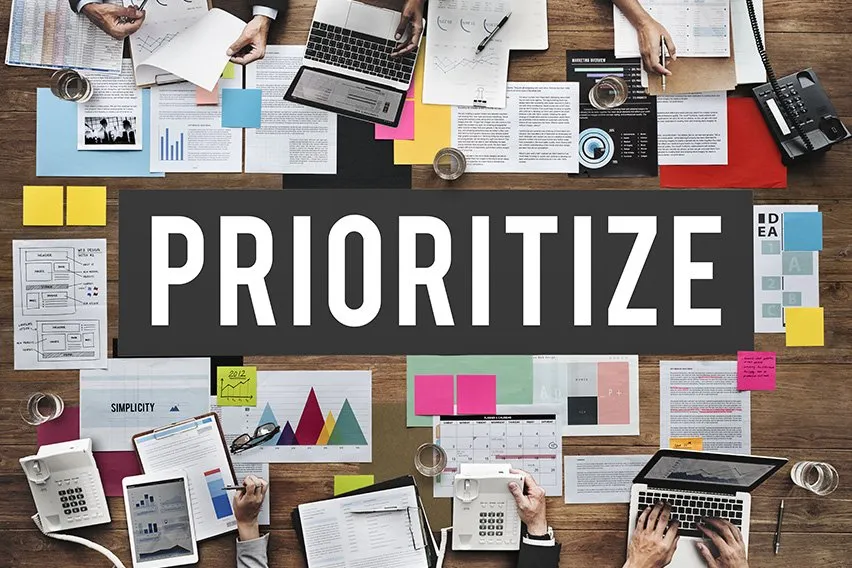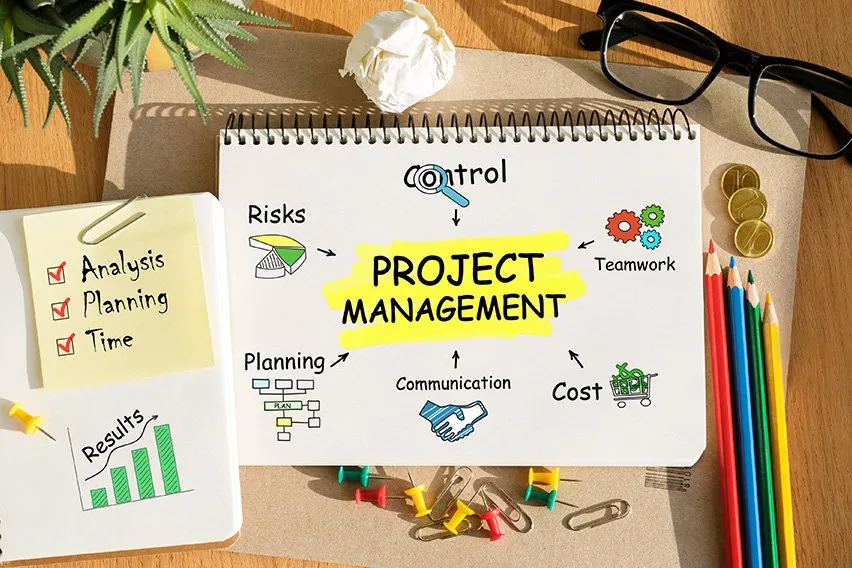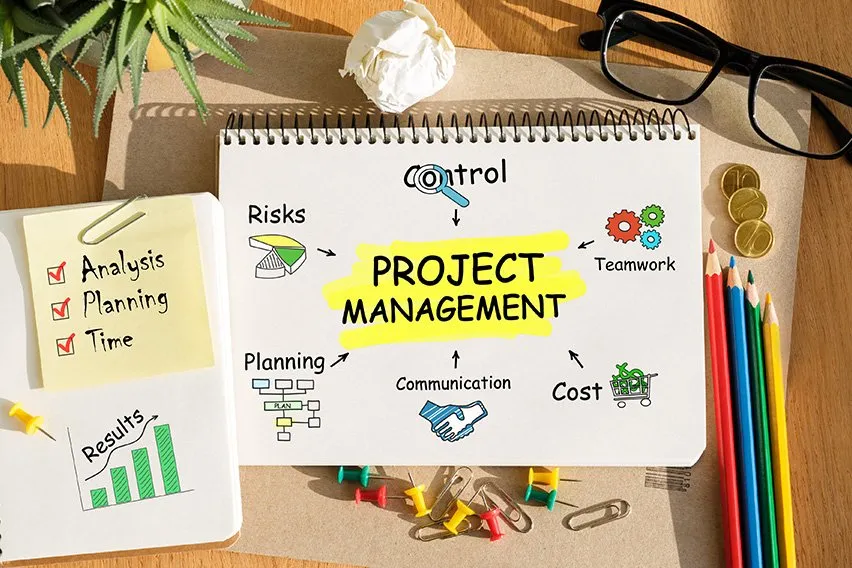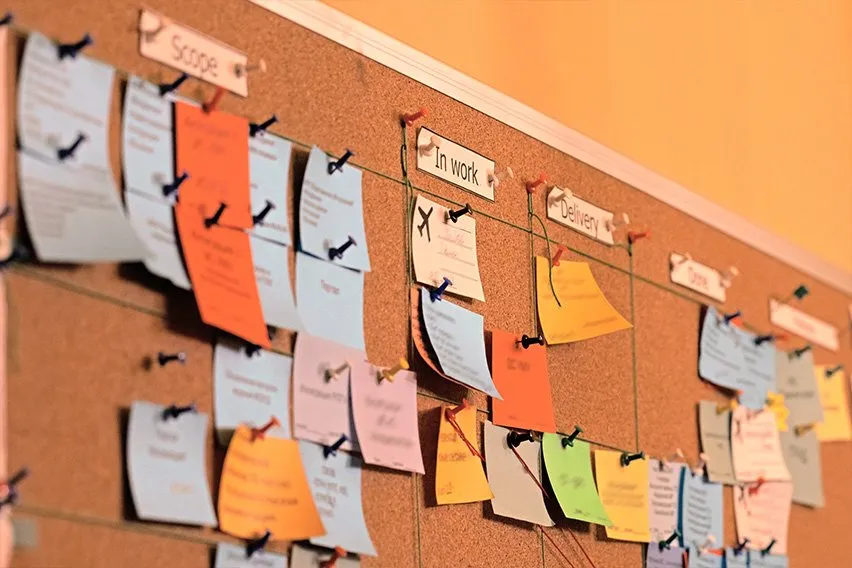How to Prioritize Work Effectively and Focus on Your Goals

Prioritizing work is an important time management skill for small businesses and freelancers who often work on multiple projects at the same time for different clients. To effectively prioritize your projects, you need to identify how urgent and how important all your different work tasks are, and rank them accordingly. Important work should align with your long-term goals and mission, whereas urgent work simply needs to be done as soon as possible. By learning proper prioritization techniques, you’ll become more productive in your work life and more focused on your goals.
These topics show you how to prioritize work and improve your efficiency:
How Do You Focus on Your Goals?
How to Prioritize Work
Prioritizing work involves making difficult decisions about the importance of your ongoing jobs. Follow these seven steps to learn how to prioritize work effectively:

Identify Your Goals
To prioritize your work properly, you first need to establish your goals so you have a big picture view of what you’re working toward every day. Set long-term goals that clearly demonstrate what you hope to accomplish in your career and personal life. You can also set short-term goals that you’d like to accomplish each month that help propel you toward your long-term goals. Once you have your goals written down, keep them close at hand so you can easily refer to them. Revisit and revise your long-term goals whenever you need to.
Create a List of Your Tasks
The next step in prioritizing work is identifying all the tasks you have ahead of you. Create a master list that includes all your current and future tasks. Once you’ve captured all your jobs on a master list, break them down into monthly, weekly and daily tasks. Start by creating a monthly list from the master list that identifies everything you hope to accomplish for the month. It can include personal priorities in addition to work obligations. From your monthly list, pull the tasks you can finish each week into a weekly list and from there create daily to-do lists.
Assess Importance and Urgency
Now that you have a grasp of all the tasks ahead of you, it’s time to identify how important and how urgent each task is. Urgent tasks are those that need to be completed quickly, for example, a report that a client needs by the end of the day. They might not be important, though; in fact many urgent tasks aren’t important. Important tasks are those that bring you closer to your long-term goals and mission. They’re typically more time consuming and may not have a clear deadline for completion. It’s a good idea to take care of the urgent tasks on your list as soon as you can. Then, you’ll be able to schedule longer periods of time in your calendar to focus on important work.
Measure Value
When you have a list of your urgent tasks and you need to decide which to give priority to, it can help to assess the value of each task. For example, if one of your urgent tasks is a project for your clients and the other is an internal report you need to create for your business, give priority to the client project.
Order Similar Tasks by Effort
If you still have tasks that seem to tie for priority, make an estimate of how much time each task will take to help you prioritize. You might feel more motivated and energized if you first tackle the tasks of equal priority that take the shortest amount of time to complete.
Be Open to Changes
It’s important to understand that your priorities aren’t static; they can change throughout the week or in the middle of the day. Maybe a client will reach out and ask for help on a new urgent job that needs to be completed by the end of the day and you don’t want to turn them down. Just be sure you can stay focused on the big picture and reorder your priorities when necessary to quickly get back on track.
Know What to Drop
You only have so much time in the day and you won’t always be able to get to everything at once. When you’ve set your top priorities and scheduled them in for the day, cut the remaining tasks and focus on them another day, when they become a higher priority. Then, focus on the day’s projects and get to work tackling your priorities.
How Do You Focus on Your Goals?
Focusing on your long-term goals is one of the keys to staying motivated and managing your time. Here are five tips to help you stay focused on your goals:
Identify Just a Few Goals
You might be tempted to create a long list of goals that you’re motivated to accomplish, but you’ll need to narrow your focus to be as effective as possible in your work. If your list of goals is long, follow the advice of Warren Buffett: circle your top five goals from your list and focus on those. The remaining goals on your list? Avoid them at all costs until you’ve accomplished your top five goals.

Break Down Your Goals
If you have a series of large goals you’re trying to accomplish, you can easily become overwhelmed and unsure of how to start working toward them. To make your goals seem more attainable, it can help to break them down into smaller steps with specific tasks. That way, you’ll know exactly what you need to do to work toward each goal.
Measure Your Progress
Each of the goals you set should be measurable, so you can track your progress toward attaining them. Record the actions you’re taking to achieve your goal on a regular basis and measure your progress. For example, if one of your goals is to earn $50,000 for the year, you can set milestones throughout the year and regularly measure your progress toward your ultimate revenue goal.
Get an Accountability Partner
We’re more productive when we have someone to answer to, and self-employed workers and freelancers don’t always have someone holding them accountable. Share your goals with a friend or colleague and ask them to help you stay accountable for them. Schedule regular check-ins where you update your partner on the work you’ve done toward your goal and any challenges you face. An added bonus is that your accountability partner can give you insights and ideas you might not think of yourself that can help you in your work.
Cut Out Distractions
Remove distractions from your workspace to help avoid procrastinating. Procrastination is a big time suck, so do what you can to prevent it. Lock your smartphone in a desk drawer during the workday so you aren’t tempted to use it. Use a browser extension to block social media sites and other websites that distract you. The more you’re able to manage distractions, the easier it is to focus on your goals.
RELATED ARTICLES

 Tips for Improving Bad Time Management to Boost Productivity and Reduce Stress
Tips for Improving Bad Time Management to Boost Productivity and Reduce Stress The Importance of Time Management: Tips for Productivity
The Importance of Time Management: Tips for Productivity How to Project Manage?
How to Project Manage? What Are the Project Management Processes?
What Are the Project Management Processes? Why Is Project Management Important? Because It Provides a Detailed Plan
Why Is Project Management Important? Because It Provides a Detailed Plan 16 Tips on How To Organize a Business
16 Tips on How To Organize a Business